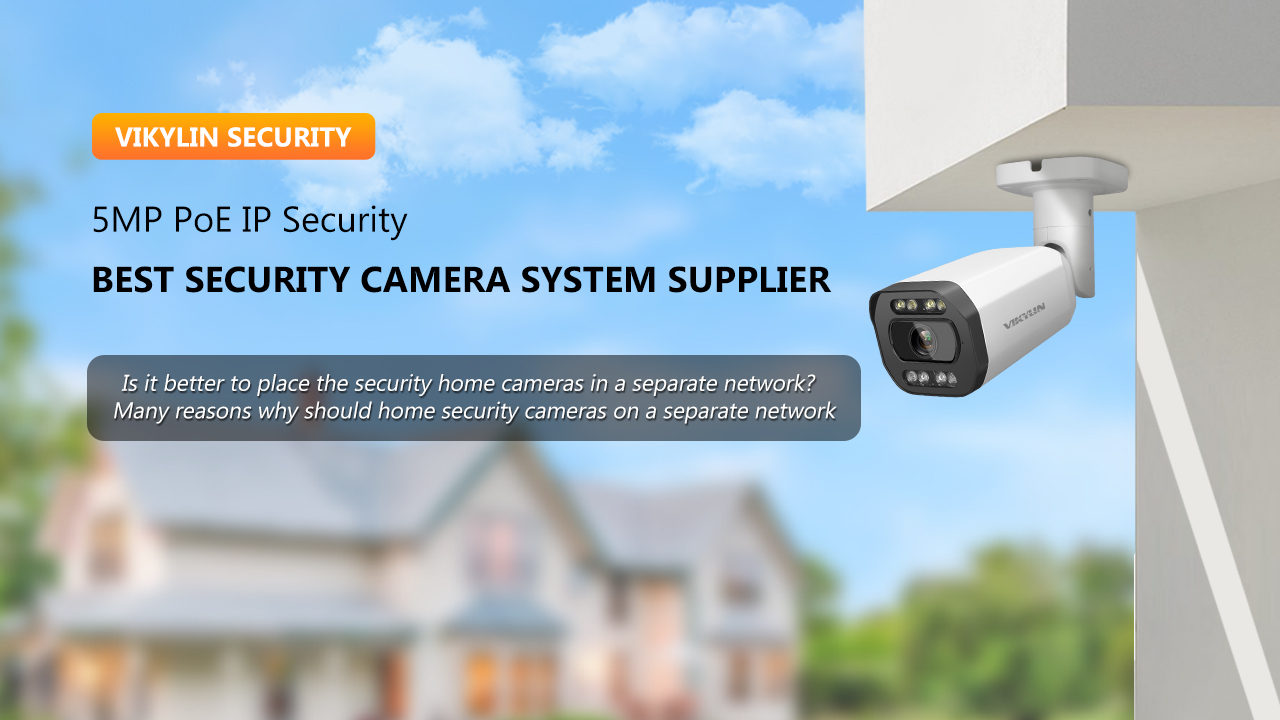In the realm of security home cameras, the paramount importance of safeguarding our properties remains indisputable. With advanced cameras like 4k security camera and top-tier best security cameras outdoor, today homeowners possess a plethora of choices to ensure their premises’ safety. A pertinent query that emerges in this context is whether opting for a separate network for IP security home cameras holds merit. This article delves into the rationale behind segregating IP cameras onto a distinct network—a prudent strategy for bolstering security.

Why Security Cameras Are Better Off Separate Network?
Optimal Performance Assurance
Renowned for their high-resolution imagery, 4k security camera systems capture intricate details that prove pivotal in identifying potential threats. Allocating a separate network for these security home cameras guarantees separate network bandwidth, preempting potential sluggishness due to network congestion. This segregation ensures that the cameras seamlessly deliver real-time footage devoid of lags, thus upholding uncompromised surveillance efficacy.
Elevated Network Security
The finest best security cameras outdoor are often exposed to external elements and potential hacking endeavors. By isolating IP security home cameras on an exclusive network, an additional layer of defense against unauthorized access is established. This practice significantly curtails the risk of intruders breaching your primary network via vulnerable cameras, effectively shielding sensitive data and personal privacy.
Mitigation of Network Vulnerabilities
The resilience of a network is as robust as its weakest juncture. Collating IP cameras within a separate network aids in containing potential security breaches. Even if a camera is compromised, the infiltrator’s access remains confined to the camera network, thwarting any pivot into the main network. This containment approach substantially diminishes the scope of a security breach, thereby limiting potential damages.
Streamlined Network Management
The management of numerous devices within a singular network can prove intricate, especially when managing resource-intensive devices such as security home cameras. Partitioning IP cameras onto a segregated network streamlines network management. This tactic enables focused camera-specific configurations, updates, and troubleshooting, all without impacting the overarching network infrastructure.
Allocation of Bandwidth to Critical Applications
In contexts where network resources are finite, as in shared spaces or business environments, segregating IP cameras onto their own network ensures unimpeded bandwidth allocation to critical applications. This strategy forestalls cameras from monopolizing invaluable resources that should rightly be channeled towards essential tasks, like video conferencing or data transfers.
Conclusion
Opting for a separate network for security home cameras is a tactical decision replete with myriad advantages. From guaranteeing peak camera performance and reinforcing network security to curtailing vulnerabilities and simplifying network administration, the benefits are unmistakable. In a landscape marked by the proliferation of 4k security camera and the escalating demand for top-tier best security cameras outdoor, adopting proactive measures is imperative for ensuring dependable and robust vigilance. By segregating IP cameras onto a separate network, you take a momentous stride toward fortifying your security framework and safeguarding what holds paramount significance.
Related Reads: You might also be interested in the following related topics:
❓ Explore The Advantages of PTZ Surveillance Camera for Home Security
❓ 7 Essential Maintenance Steps for Your CCTV Surveillance System
❓ Where to Place Household Security Cameras for Maximum Coverage?





